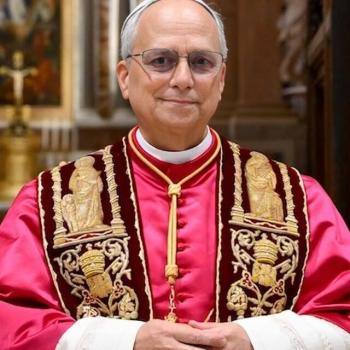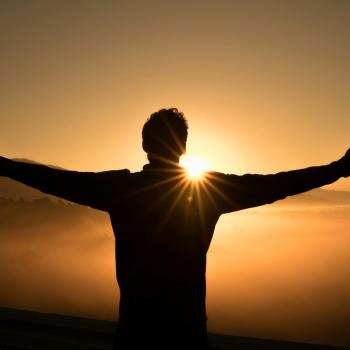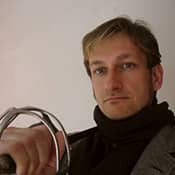It was the weirdest request I've gotten in months, and it made me smile. It came from BT Newberg, editor of Humanistic Paganism (one of those wonderful rags that dares to question the gods) and one of our columnists here at Patheos.
"What kinds of charities would the Irish gods support?" he asked me.
BT was in the midst of one of the coolest projects I've seen—and one of the most useful to devout polytheists. He feels that giving time, money or service to an appropriate cause is as legitimate a way of offering to a god as pouring out a glass of wine for them. I agree. Northern European myth is full of oaths to perform mighty deeds on behalf of esteemed patrons, and there's none more estimable than the gods themselves. Serving a cause is certainly a way to serve the gods.
There was one snag, however: he was kind of stuck on the Irish pantheon.
BT had already worked out the Greek, Roman and Egyptian charity lists but when it comes to the Irish gods, just figuring out who's-who can be difficult. He wondered if I would create a list of the major deities and offer suggestions for the kinds of causes they'd support.
Well, I may have gone a little overboard.
Below you can see the original list I offered BT. If you're thinking of offering time or money to nonprofit work this holiday season, maybe these suggestions will help turn it into a spiritual practice.
Note on spelling. To the best of my knowledge, all of these names are correctly spelled in their most common medieval form (or modern form, if one exists in common usage) but using the letter "h" for aspiration instead of a raised dot above the aspirated letter. For example, Lugh instead of Luġ. That follows the convention of Modern Irish so that any Irish speaker can read them off the page. Most of the variant spellings found online are not true variants at all: they involve spelling or grammar errors. (Example: Danann is sometimes given as a variant of Danu but it's really just the genitive, meaning "of Danu.") Thus, what you see here should be the most "correct" spelling available.
Theological note. Irish deities do not have a direct one-to-one correlation with a specific natural domain. Each great deity is the soul of a powerful force of nature—exactly as the human soul allegedly inhabits a living body. Or if you're more humanistic, each great deity is the personification of such a force. Either way, the persona of, say, thunder might have a lot more interests than just dropping lightning bolts all over. So most Irish deities have a clear personality, with a sometimes unclear grouping of associations. The associations are based on concepts that seemed very related to the early Irish.
+ Denotes warrior deities. All of them can be broadly associated with causes involving just fights, supporting troops and consuming beer.
* Denotes sovereignty goddesses. All can be broadly associated with political causes, environmental causes and consuming wine or mead.
I. GREAT DEITIES
Danu*
Spirit of the land itself, and the life-giving water that runs through it. Can be broadly seen as the earth or the entire natural universe. Mother of the gods.
Causes: Any nurturing cause makes sense for Danu. Causes that aid mothers or women in general. Also, protecting the earth.
Daghda+
Spirit of the sky, rain and thunder. Spirit of plenty. A virile, jovial (pun intended) and friendly god. Easy to get along with. A people's deity. Has giant man-parts.
Causes: Feeding the hungry! Also, fertility-related causes. Curing prostate cancer or stopping STI's. Causes that help fathers or men in general. Populist causes.
Lugh+
Spirit of heroism and leaders. Appointed High King of the gods. A transfunctional and mercurial deity who draws on the domains of all other gods. Spirit of noble self-sacrifice.
Causes: Lost causes. Those who are alone or outnumbered. Supporting principled, honorable people in the face of great adversity. Supporting just war efforts. Destroying dictators. Freeing slaves. As an elected king, potentially pro-democracy causes. Organizations or causes that promote heroism and selflessness. County or state fairs, or any country fair. Competitions. Feeding the hungry.





